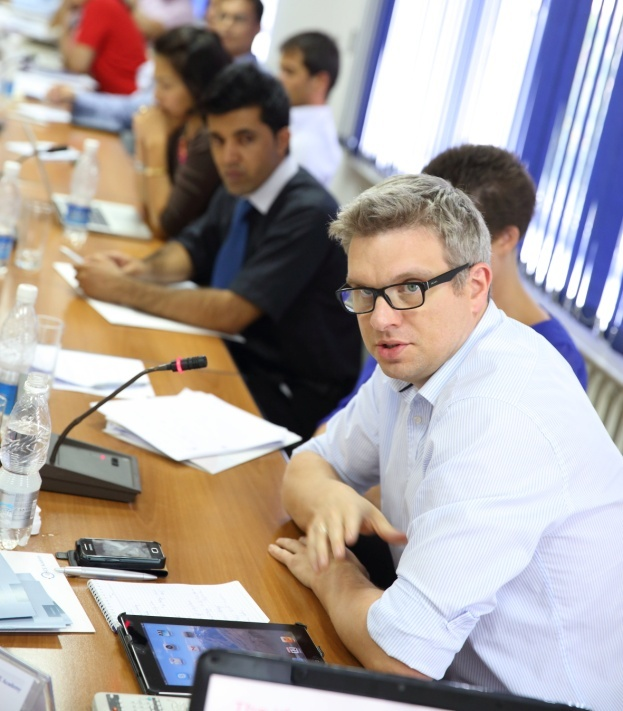News
“Understanding Central Asian Islam: Contemporary Research Standards”
On 12-13 September 2013 the OSCE Academy hosted a workshop “Understanding Central Asian Islam: Contemporary Research Standards”. The event gathered 25 young scholars and civil activists from Central Asian states and Afghanistan as well as experienced academics and scholars of Islam from Europe and USA, representing the Zentrum Moderner Orient, (Berlin), University of Amsterdam (the Netherlands), University of Aberdeen (UK), University of Pittsburgh (USA), Nazarbayev University (Kazakhstan) and University of Freiburg (Germany).
The purpose of the seminar, which was first time held in 2011, was to bring together the leading experts on Central Asian Islam and the young Central Asian scholars to discuss the concept of Islam in the regional context and the scholarly approaches to studying Islam. The seminar was a combination of presentation of latest research results on the topic and discussion of new research ideas, notably those proposed by the junior Central Asian scholars. Thus the outcomes of the seminar are both a scholarly discussion and capacity-raising for future research endeavors in the region.
During the workshop experts looked at the issues of measurement of religiosity, as well as contextualizing religion from social, anthropological, political and historical angles. In this vein, the seminar addresses the problem of politicization and securitization of religion in Central Asia, well reflected in the keynote speech by Dr Johan Rasanayagam (University of Aberdeen) “Topics of “extremism” and “radicalization” in academic research – academic vs political agenda?”

Kyrgyzstan, Bishkek, 1A Botanichesky pereulok
Tel.: +996 (312) 54-32-00, 54-12-00
Fax: +996 (312) 54-23-13


 Русская версия
Русская версия